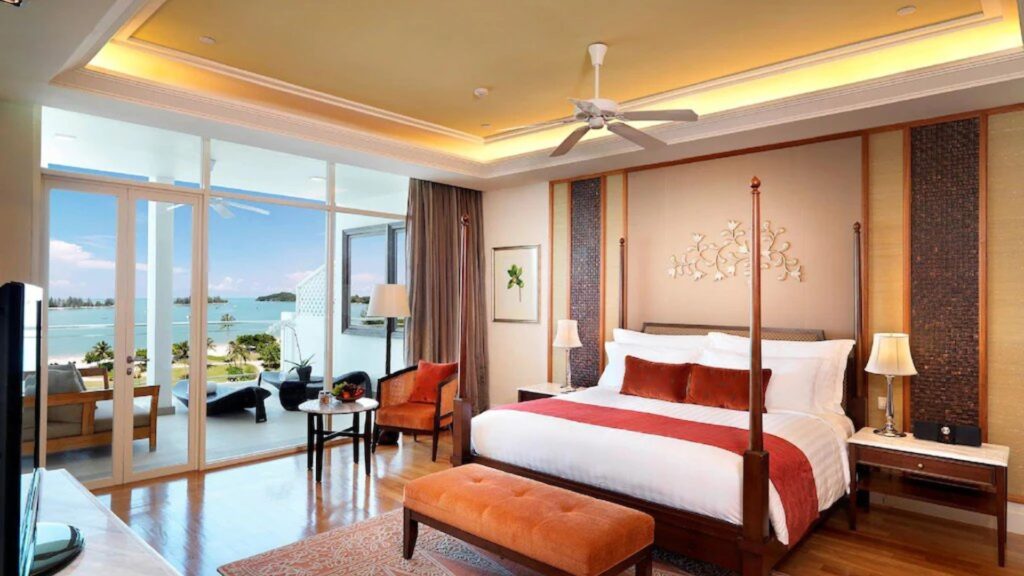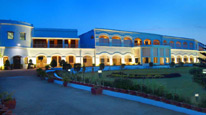In 2025, the luxury hospitality industry is evolving faster than ever. High-end travelers are no longer just seeking opulent accommodations—they want personalized experiences, cutting-edge technology, and sustainability. Luxury hotels are rising to meet these expectations, staying ahead by constantly adapting to emerging trends. Here’s how they’re leading the charge in shaping the future of hospitality.
1. Embracing Hyper-Personalization
One of the biggest trends defining 2025 is hyper-personalization. Luxury hotels are leveraging data analytics, AI, and guest history to deliver tailor-made experiences.
From remembering a guest’s preferred room temperature to curating spa treatments based on wellness profiles, personalization is key. Some hotels even use facial recognition to greet returning guests by name or offer custom dining menus based on past orders. This attention to detail makes guests feel uniquely valued—and keeps them coming back.
2. Leading with Sustainable Luxury
Sustainability is no longer optional. Discerning guests are choosing hotels that align with their eco-conscious values. In response, luxury hotels are incorporating green building practices, reducing plastic usage, sourcing locally, and achieving LEED certifications.
Innovative properties are also introducing zero-waste policies, organic linens, and farm-to-table restaurants. Some go a step further, offering carbon-neutral stays or allowing guests to track their personal environmental impact during their visit.
This commitment to sustainability doesn’t compromise on luxury—it enhances it by giving guests a sense of purpose and responsibility during their stay.
3. Investing in Smart Room Technology
Tech-savvy travelers now expect seamless digital integration. In 2025, luxury hotels are delivering just that with state-of-the-art smart room technologies.
Voice-activated assistants, app-based room controls, and immersive entertainment systems are standard in many upscale properties. Guests can adjust lighting, request room service, or stream their favorite content—all from a central device or app.
Some luxury hotels are even experimenting with virtual reality (VR) previews of rooms and amenities before check-in, enhancing the decision-making and booking process.
4. Wellness as a Core Experience
Wellness is no longer confined to spa treatments—it’s an integral part of the luxury hotel experience in 2025.
Hotels are offering sleep wellness programs with circadian lighting, soundproofed rooms, and personalized sleep consultations. Nutrition-focused dining, yoga retreats, on-demand fitness apps, and even in-room air purification systems are being integrated into the guest experience.
Mental wellness is also a growing focus, with meditation pods, sound healing sessions, and stress-relief programs tailored for travelers looking to recharge.
5. Curating Local and Cultural Experiences
Modern luxury travelers crave authentic, culturally rich experiences. In 2025, top hotels are curating bespoke local adventures that go beyond traditional sightseeing.
Think private cooking classes with local chefs, art walks with resident artists, or behind-the-scenes vineyard tours. By partnering with local communities, luxury hotels provide meaningful, immersive encounters that deepen guest connections to the destination.
This also helps support local economies, creating a more sustainable and socially responsible model of luxury travel.
6. Elevated Food and Beverage Concepts
Dining is no longer just about five-star cuisine—it’s about storytelling and sensory engagement. Luxury hotels are redefining their food and beverage programs to deliver unforgettable culinary journeys.
From Michelin-starred collaborations to immersive dining experiences (like underwater or rooftop meals), creativity is key. There’s also a strong movement toward plant-based menus, indigenous ingredients, and chef-led tasting menus that reflect the hotel’s cultural surroundings.
In 2025, guests expect innovation on every plate—and luxury hotels are delivering.
7. Seamless Digital Guest Journeys
From booking to check-out, the guest journey is being transformed through digital convenience. In-room tablets, contactless check-in, digital concierge services, and AI-powered recommendations ensure smooth, personalized experiences.
Blockchain technology is also beginning to emerge, allowing for secure, transparent bookings and loyalty rewards. The goal? A frictionless stay where the guest feels empowered, not overwhelmed by tech.
Conclusion
In 2025, luxury hotels are more than just places to stay—they are lifestyle destinations, tech pioneers, and leaders in sustainable innovation. By staying ahead of hospitality trends and embracing the values of modern travelers, they are setting new standards for excellence.
Whether it’s through personalized service, cutting-edge technology, or culturally immersive experiences, the best luxury hotels continue to redefine what it means to travel in style. And as expectations evolve, these trailblazing properties will keep pushing boundaries—ensuring the future of hospitality remains as inspiring as it is indulgent.






